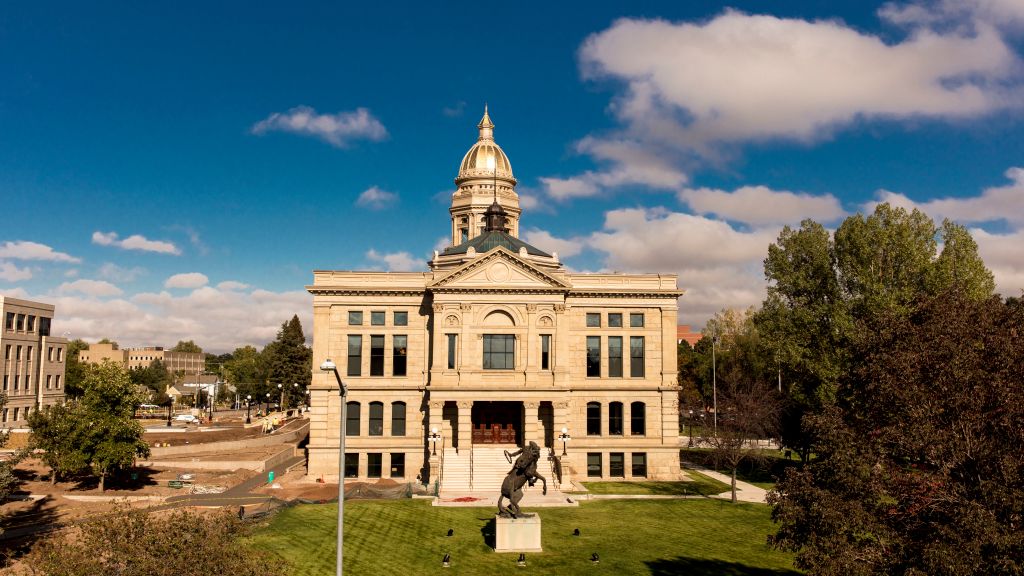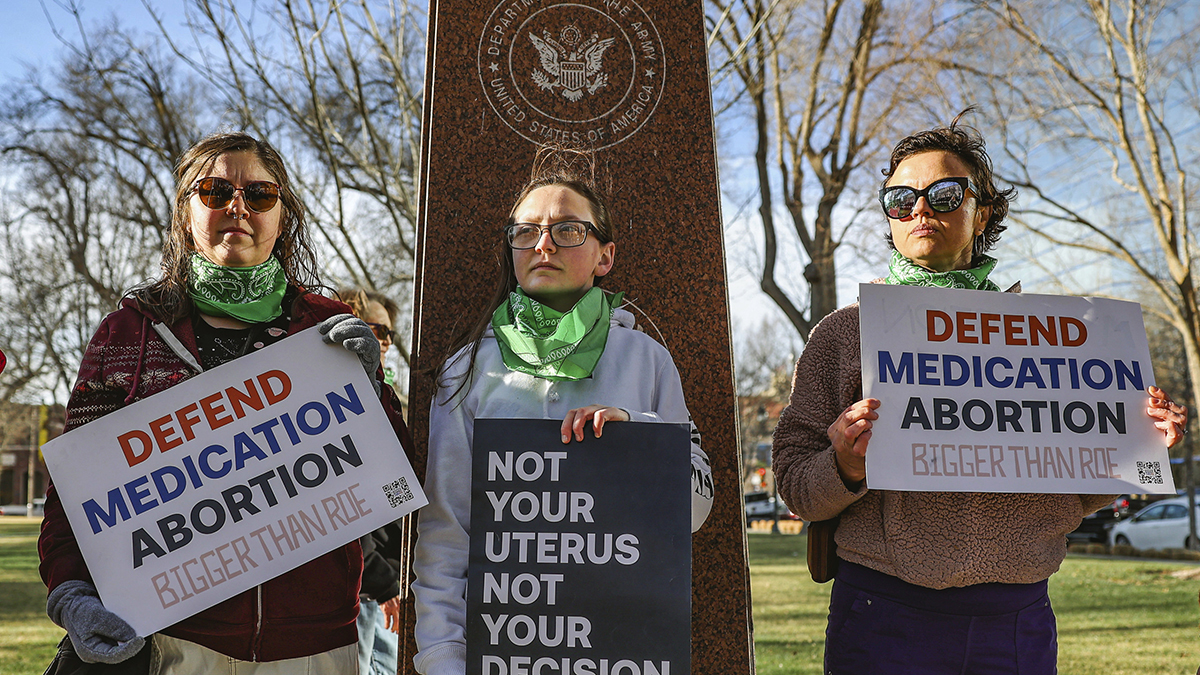
A hospital in northern Idaho is ending labor and delivery services, citing staffing issues and the state’s “legal and political climate."
Jen Jackson Quintano, 43, had planned to give birth at her home in Sandpoint, Idaho, a northern town with a population of just over 9,000 people, a few years ago.
When she started to experience complications, she was rushed to Bonner General Health, the only hospital in the area with labor and delivery services. After an emergency C-section, she gave birth to a healthy baby girl.
“I can’t imagine how the circumstances might have been different if I had to travel all the way to Coeur d’Alene or if I had to go into the emergency room,” Jackson Quintano tells TODAY.com.
We're making it easier for you to find stories that matter with our new newsletter — The 4Front. Sign up here and get news that is important for you to your inbox.
Now, that's a new reality for the pregnant people in her community.
"People in this town are feeling this sadness, this shock and this sense of outrage," Jackson Quintano says. "Who is going to be serving mothers and their children and what are we going to see in the way of maternal mortality?"
In a news release, the hospital's board of directors and senior leadership team said they "made every effort to avoid eliminating" labor and delivery services.
"We hoped to be the exception, but our challenges are impossible to overcome now," Ford Elsaesser, Bonner General Health’s Board President, said in the written statement.
As a result, Sandpoint residents will have to drive at least 46 miles to find the nearest hospital providing prenatal, birth and postpartum care.
According to the news release, the "emotional and difficult decision" was made due to the loss of pediatric coverage "to manage neonatal resuscitations and perinatal care," a decrease in the number of babies born at the hospital and "Idaho's legal and political climate."
Currently, Idaho has three separate near-total abortion bans: One that prohibits abortion after 6 weeks of pregnancy, one that bans all abortions with exceptions for rape, incest or the life of the pregnant person and one that allows family members to sue doctors who they believe provided abortion care in civil court.
Relevant Content:
"Highly respected, talented physicians are leaving," the news release stated. "Recruiting replacements will be extraordinarily difficult. In addition, the Idaho Legislature continues to introduce and pass bills that criminalize physicians for medical care nationally recognized as the standard of care. Consequences for Idaho Physicians providing the standard of care may include civil litigation and criminal prosecution, leading to jail time or fines."
TODAY.com reached out to Bonner General Health for comment but did not hear back at the time of publication.
According to the American College of Obstetricians and Gynecologists (ACOG), less than half of all rural women live within a 30-minute drive to the nearest hospital offering perinatal care. One 2011 study found that when pregnant people have to travel farther for maternity services, their health suffered.
Jackson Quintano, who has lived in Sandpoint for 11 years, says that the OBGYN who delivered her daughter, Dr. Amelia Huntsberger, is now leaving the state, which Huntsberger also confirmed in an email to the Idaho Capital Sun newspaper.
As some OBGYNs leave the state, some future doctors are also reconsidering their employment options.
Nicolette Jessen, 27, just graduated from medical school and had hoped to return home to Sandpoint to serve as an OBGYN.
Now, she says she has to change her plans.
"When I found out about all of this, I was in mourning," Jessen tells TODAY.com. "Sandpoint was my plan A, B, C and D, but what do you put first? Do you put your desire to have a family in a safe area first, or your desire to be a full-scope provider who can provide abortion care? It's painful."
"Things can change, and hopefully they do," she adds. "I can't even imagine what the current OBGYNs are feeling."
A 27-year-old labor and delivery nurse, who spoke to TODAY.com on the condition of anonymity because she is now looking for work, had worked at Bonner Health for nearly six years before she says hospital leadership announced at a mandatory meeting on March 16 that "our unit would be closing and we'd all be losing our jobs."
While she says she's "happy that light is being shed nationally" on the impact of the state's abortion bans, she says she believes the decision to shutter the labor and delivery ward is due to "money and the greed of our health care and hospital system in this country."
"Yes, these laws and legislation need to get out — they’re not OK,” the nurse tells TODAY.com. “But ... most obstetrical units don't make money for a hospital."
According to one 2017 study published in the journal Health Affairs, 9% of rural counties lost their hospital labor and delivery services between 2004 and 2014, many citing financial issues. As a result, more than half of rural counties do not have access to hospital-based perinatal care.
Bonner General Health representatives did not respond to TODAY.com's request for comment.
The nurse is now applying for another job. And, she says, she's rethinking her plans to start a family.
"I planned on having a baby next year in that hospital with the doctors I trust and the nurses that I love," she says. "I guess that's out the window because now I have no access to prenatal care outside of driving to a big city.
"I'm not even pregnant or close to pregnant, but it was in the cards," she adds. "Now I don't know."
Jennifer Prandato contributed to this report.
This article first appeared on TODAY.com. More from TODAY:



